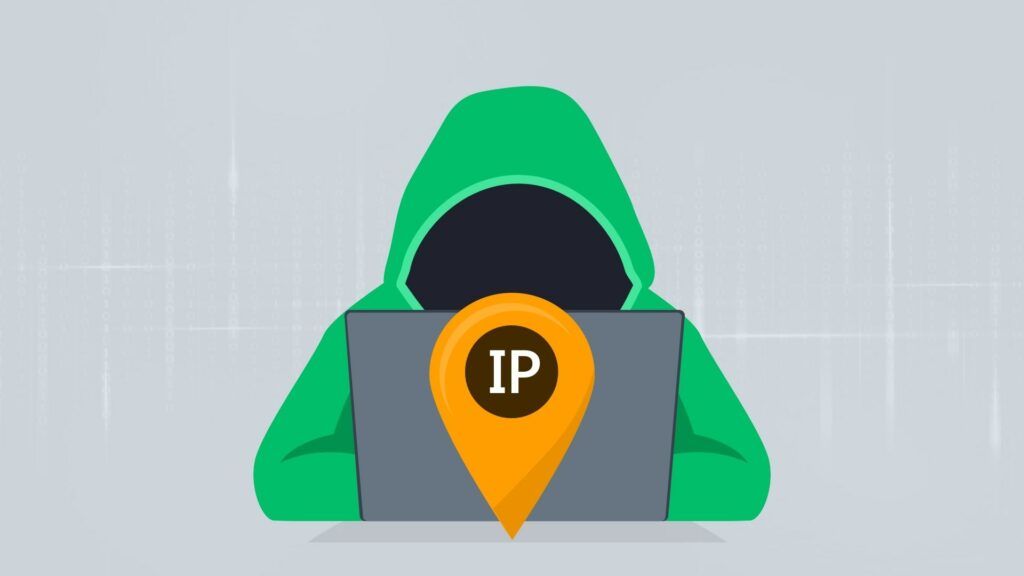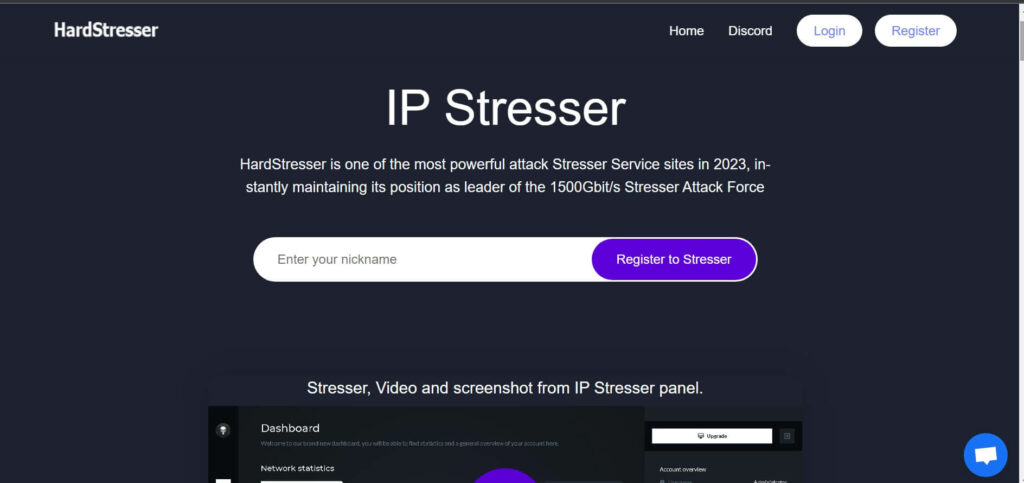In the intricate web of cyberspace, where data flows ceaselessly and networks interconnect across the globe, lies a dark alley seldom acknowledged by mainstream users – the realm of IP stressors.
The legality of IP stressers varies globally, with some countries criminalizing their use and operation due to their association with cybercrime and disruption of online services.
Understanding the mechanics, implications, and countermeasures against IP stressors as cyber threats evolve becomes paramount in safeguarding digital ecosystems.
Table of Contents
What are IP stressors? – Let’s Dive In!
IP stressers, also known as booters or booter services, are online platforms offering users the ability to launch DDoS attacks against designated targets for a fee.

Conceived initially as legitimate network testing tools to assess the robustness of systems against high traffic loads, these services have morphed into powerful weapons in the hands of cybercriminals.
With just a few clicks, individuals can rent the services of an IP stresser to inundate a target’s network infrastructure with a deluge of malicious traffic, rendering it inaccessible to legitimate users.
Operating Mechanisms of IP Stressers – An Explanation!
The operational dynamics of IP stresses are relatively straightforward and designed to be accessible to even novice users with minimal technical proficiency.
Upon accessing an IP stresser service, users are typically prompted to provide the target’s IP address along with the desired duration and intensity of the attack.
Subsequently, the stresser leverages a network of compromised devices, often called botnets, to orchestrate a coordinated assault on the target’s infrastructure.
These botnets, comprising hijacked computers, servers, and Internet of Things (IoT) devices, amplify the magnitude of the attack, overwhelming the target’s resources and disrupting its online services.
Read Also: Blox Fruit Codes – Redeem Them Now!
Reasons People Use IP Stressers – Why They Use Them!
The motivations driving individuals to utilize IP stressors are as diverse as nefarious. For some, it may be an avenue for settling personal vendettas or exacting revenge against perceived adversaries.
Others may deploy IP stressors as extortion, targeting businesses with threats of prolonged DDoS attacks unless a ransom is paid. Additionally, politically motivated actors may employ these tools to silence dissenting voices or undermine the digital infrastructure of rival factions.
Irrespective of the motive, the repercussions of IP stresser attacks can be catastrophic, inflicting financial losses, reputational damage, and operational disruptions on the victimized entities.
Impacts of IP Stresser Attacks – How They Work!
The fallout from IP stresser attacks extends far beyond the immediate disruption of online services, permeating commerce, national security, and public safety.
Businesses reliant on digital platforms for revenue generation face significant financial losses from downtime, diminished customer trust, and regulatory penalties.
Furthermore, critical infrastructure sectors such as healthcare, energy, and finance are vulnerable to cascading effects triggered by prolonged service outages, posing risks to public health, economic stability, and societal well-being.
Moreover, the proliferation of IP stresser attacks exacerbates the cybersecurity landscape, fostering an environment ripe for exploitation by malicious actors seeking to exploit vulnerabilities for personal gain.
Read Also: David Choe net worth – Click for the complete guide!
Legality and Ethical Implications – Ip Stressers and the Law!
The legality of IP stresser services occupies a grey area within the legal frameworks of many jurisdictions, with conflicting interpretations regarding their permissibility.

While some countries have enacted legislation explicitly criminalizing the operation and use of IP stressors, others lack specific statutes addressing these tools, leaving law enforcement agencies grappling with the challenge of prosecuting perpetrators.
Ethically, deploying IP stressors raises ethical quandaries about the responsible use of technology, privacy rights, and the societal implications of weaponizing digital infrastructure for malicious purposes.
As such, fostering a dialogue encompassing legal, ethical, and regulatory considerations is imperative in devising holistic approaches to combat the proliferation of IP stressors.
Understanding, Protecting, and Working Together – Identifying IP Stressors!
Implementing robust mitigation strategies is essential in fortifying digital defenses against IP stresser attacks in the perpetual cat-and-mouse game between cyber defenders and adversaries.
Proactive measures such as network segmentation, traffic filtering, and rate limiting can help mitigate the impact of DDoS attacks by thwarting malicious traffic before it reaches the target infrastructure.
Additionally, leveraging cloud-based DDoS protection services equipped with sophisticated detection algorithms and mitigation capabilities can provide organizations with the scalability and resilience needed to withstand volumetric attacks.
Moreover, fostering collaboration among stakeholders, including Internet service providers (ISPs), cybersecurity vendors, and law enforcement agencies, facilitates information sharing, threat intelligence dissemination, and coordinated response efforts to disrupt IP stresser services’ operations.
Evolution of IP Stressers:
The origins of IP stressors can be traced back to legitimate network testing tools used by system administrators and cybersecurity professionals to assess the resilience of network infrastructure against traffic spikes and volumetric attacks.
However, the proliferation of these tools in underground forums and cybercriminal marketplaces has transformed them into potent weapons for launching DDoS attacks.
Read Also: Kevin Samuels Wife – Click For The Complete Guide In 2024!
Botnet Infrastructure:
Central to the operation of IP stressors is the utilization of botnets – networks of compromised devices under the control of a malicious actor or botmaster.
These botnets, comprised of computers, servers, routers, and IoT devices infected with malware such as Trojans or bot agents, provide the computational resources necessary to orchestrate large-scale DDoS attacks.
Business Models of IP Stresser Services:
IP stresser services operate commercially, offering subscription-based access to their platforms in exchange for a fee. These services often tout guaranteed uptime, round-the-clock customer support, and customizable attack options tailored to clients’ needs.
Some IP stresser operators also offer affiliate programs, incentivizing users to recruit new customers in exchange for financial rewards or service credits.
Underground Economy:
The underground economy surrounding IP stressors thrives within hidden online forums, dark web marketplaces, and clandestine chat channels, where illicit goods and services are bought and sold using cryptocurrencies and anonymous payment methods.
Within these digital bazaars, cybercriminals exchange tactics, tools, and techniques, facilitating the proliferation of IP stressors and other cyber threats.
Technological Advancements:
The arms race between cyber defenders and adversaries continues unabated, with IP stresser operators leveraging technological advancements to evade detection and amplify the potency of their attacks.
Techniques such as DNS reflection and amplification, SYN flood attacks, and application layer exploits are commonly employed to overwhelm target networks while circumventing traditional mitigation measures.
Read Also: Carley Shimkus Husband – Learn More In 2024!
Legal and Regulatory Responses:
Governments and law enforcement agencies worldwide have recognized the escalating threat of IP stressors and enacted legislation to curb their proliferation.
Measures such as the Computer Fraud and Abuse Act (CFAA) in the United States, the Cybercrime Act in the United Kingdom, and the European Union’s Directive on Attacks against Information Systems (EU NIS Directive) impose penalties on individuals involved in the operation and use of IP stressors for malicious purposes.
International Cooperation and Coordination:
Given the borderless nature of cyber threats, international cooperation and coordination are essential in combating the global proliferation of IP stressors.

Initiatives such as the Joint Cybercrime Action Taskforce (J-CAT), established by Europol, facilitate collaboration among law enforcement agencies, cybersecurity researchers, and private sector stakeholders in identifying, disrupting, and dismantling cybercriminal infrastructure associated with IP stressors and other cyber threats.
Threat landscape:
As technology evolves and cyber threats become increasingly sophisticated, the threat landscape surrounding IP stressors grows.
Emerging trends such as the commodification of DDoS-for-hire services, the convergence of cybercrime with nation-state actors, and the proliferation of ransom-driven DDoS attacks underscore the need for adaptive and agile cybersecurity strategies to mitigate multifaceted threats.
By delving deeper into these aspects, stakeholders can understand the multifaceted nature of IP stressors and devise effective strategies to mitigate their impact on digital ecosystems.
FAQs:
How do IP stressers work?
They exploit vulnerabilities in internet-connected devices to coordinate large-scale DDoS attacks, often using botnets. These attacks can disrupt the availability of a website, service, or network.
What are the impacts of IP stresser attacks?
IP stresser attacks can result in financial losses, reputational damage, and disruptions to online services for victims. Organizations should, therefore, ensure that they are compliant with all applicable laws and regulations in their jurisdiction.
How can organizations defend against IP stresser attacks?
Organizations can implement proactive measures like network segmentation and traffic filtering or use cloud-based DDoS protection services. This includes implementing security measures such as firewalls, encryption, and regular software updates.
Are IP stressors legal?
It depends on the jurisdiction; some countries consider their use illegal due to their association with cybercrime. Organizations should be aware of the laws in their jurisdiction and take appropriate steps to protect their networks.
Why is collaboration important in combating IP stresses?
Collaboration among stakeholders such as ISPs, cybersecurity vendors, and law enforcement agencies facilitates information sharing and coordinated responses to disrupt IP stresser operations.
Conclusion:
The legality of IP stressors varies internationally, with certain jurisdictions considering their use and operation illegal due to their association with cybercrime and disruption of online services.
Read Also:
